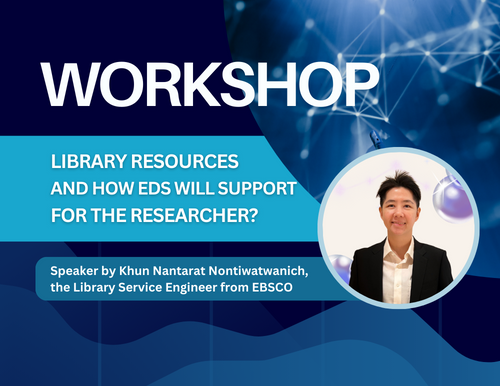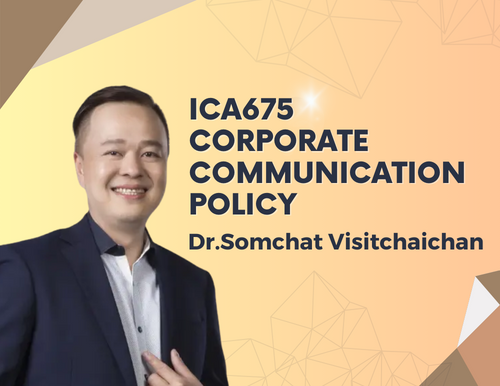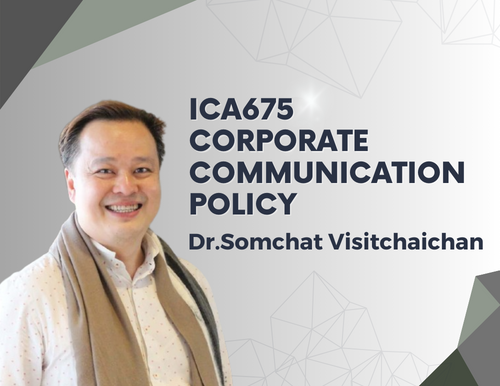The EBSCO database involves searching and accessing high-quality academic articles and research. The steps include targeted searching, reading, downloading, and saving desired articles in the system. Filters and advanced search functions help narrow down results to better match specific needs.
การทำงานในยุคปัจจุบันและอนาคตจะต้องพึ่งพาข้อมูลและเทคโนโลยีอย่างมาก คนที่สามารถวิเคราะห์ข้อมูลและใช้เทคโนโลยีได้อย่างมีประสิทธิภาพจะมีข้อได้เปรียบในการแข่งขันในตลาดแรงงาน การมีทักษะที่ทันสมัยจะช่วยให้สามารถตอบสนองต่อการเปลี่ยนแปลงของอุตสาหกรรมและนวัตกรรมใหม่ๆ ได้ดีขึ้น โดย คุณกล้า ตั้งสุวรรณ
Introducing English eBooks website. Find and choose your favorite books with ease at your fingertips. You can instantly access your favorite books. By Library and Learning Space
This workshop covers advanced searching and the more sophisticated of databases in the EBSCOhost platform. Library Resources, What is EDS and how it works?, Techniques in “Feature & Setting”, How EDS support the researcher. By Nantarat Nontiwatwanich on January 20, 2024
Brexit has significant political, economic, and social implications for both the UK and the EU, as it involves the renegotiation of various agreements, such as trade, immigration, and security. By Prof. Dr. Holger Paschedag from Aschaffenburg University of Applied Sciences (UAS)
Media Culture and AI Technology Trends for Today's Creative Media Industry
Prof.Dr. Jong-Sir Oh
Dean, School of Media Communication Dongseo University, South Korea
on March 9, 2022
9.00 - 11.00 Hrs
Lecture ICA675 Corporate Communication Policy
By Dr.Somchat Visitchaichan
Lecture Date:
Sunday 16 February 2020
1.00 p.m. - 6.30 p.m.
There are 3 parts.
Lecture ICA675 Corporate Communication Policy
By Dr.Somchat Visitchaichan
Lecture Date:
Sunday 16 February 2020
1.00 p.m. - 6.30 p.m.
There are 3 parts.
Lecture ICA675 Corporate Communication Policy
By Dr.Somchat Visitchaichan
Lecture Date:
Sunday 16 February 2020
1.00 p.m. - 6.30 p.m.
There are 3 parts.
Lecture ICA675 Corporate Communication Policy
By Dr.Somchat Visitchaichan
Lecture Date:
Saturday 1 February 2020
9.00 a.m. - 12.00 p.m.
and 1.00 p.m. - 6.30 p.m.
There are 5 parts.







